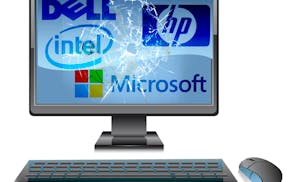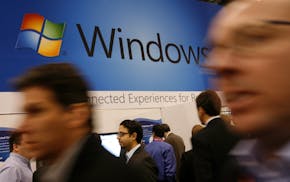Q: When I bought a new HP printer earlier this year, I discovered that its software wasn't compatible with my Macintosh "Leopard" operating system. Our local Apple Store told me that the "Snow Leopard" operating system was the only one I could upgrade to that wouldn't use all of my computer's memory.
Then I found out that Apple has ended security updates for Snow Leopard, only five years after its introduction! In addition, Snow Leopard blocks me from watching videos and won't run my Kodak photo software.
It appears that I need a new computer, and I'm outraged! I am 67, not of the generation where things get old fast and are discarded. Seniors and lower-income people can't afford expensive computers every few years. Whom can I complain to?
Pamela Dunlap, Arroyo Grande, Calif.
A: Rapid obsolescence of computers and software is a big problem, but there really isn't anyone you can complain to about it. Both buyers and sellers need to ask themselves whether that shiny new gadget or cool new software will work with the equipment they already have.
What the Apple Store employees should have told you was that your best bet was to buy a new computer instead of attempting to upgrade your old one. Upgrading computers that are five or more years old (as yours is) almost never works well.
But as a computer owner, you should have gone the extra mile to make sure your older computer was compatible with the new HP printer you wanted to buy. If you had found out in advance that it wasn't, you could have decided whether to buy a new computer without first incurring any expense or frustration.
Then other mistakes were made: The Apple Store recommended the obsolete Snow Leopard for your old Mac without telling you Apple no longer supported it. And you didn't ask whether all of your existing software would work with Snow Leopard.
We live in a technology world that's changing faster all the time. The only thing you can do is be smart about it.
Q: I inadvertently put the Tuvaro virus on my PC while downloading a game. I've tried everything to remove it, and nothing works. What should I do?
Sharon Merkle, Los Osos, Calif.
A: Tuvaro isn't a virus. It's a Web browser hijacking program that gives you search results filled with advertising and paid links to Web pages. For details on how to get rid of Tuvaro, see tinyurl.com/nn7ut2g and scroll down to "Manual Steps."
But it's difficult enough that you may want to have a repair shop do it: Tuvaro has to be removed from the PC's list of programs, Windows shortcuts, browser settings, PC settings, PC's list of scheduled tasks, PC's list of start-up programs and PC's services (programs that run in the background).
E-mail tech questions to steve.j.alexander@gmail.com or write to Tech Q&A, 425 Portland Av. S., Minneapolis, MN 55488. Include name, city and phone number.

Alexander: A beeping computer is telling you what's gone wrong inside

Alexander: How to stop deleted iPhone e-mails from coming back

Alexander: Refurbished PCs may need a BIOS update to use new components

Alexander: Windows 11 not always to blame for browser or e-mail problems


